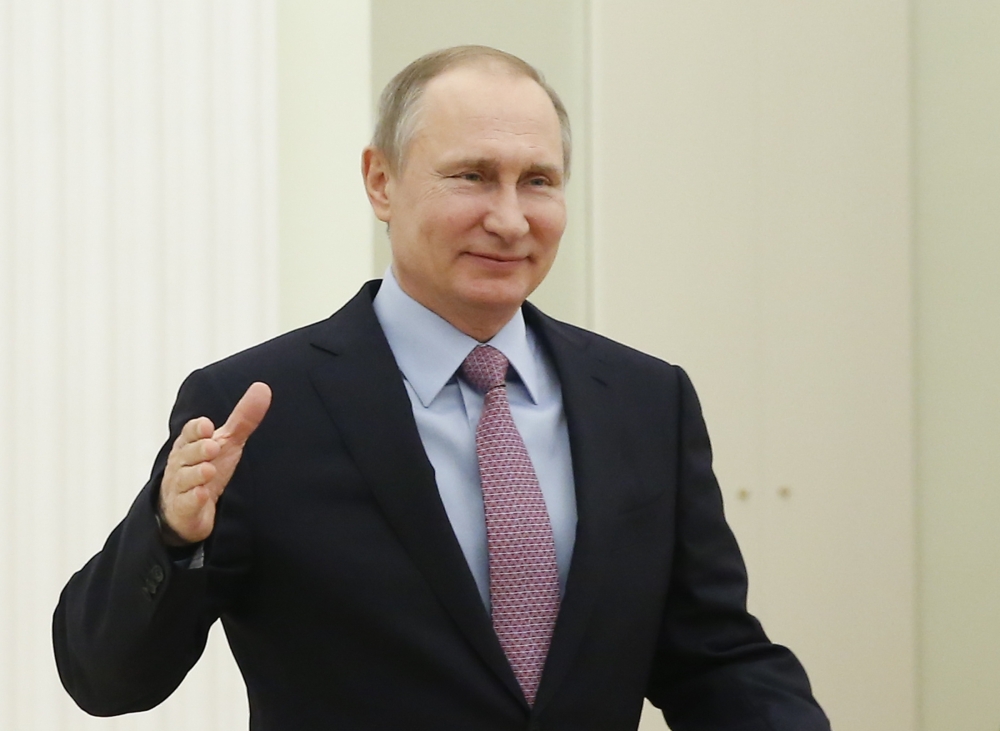
Moscow: Russia's $1.3 billion plan to build two new power plants in Crimea aimed to show that Moscow could complete high-tech projects on the annexed peninsula despite Western technology sanctions. Timetable Slipping The Kremlin said it wanted the power stations partially operational by September and fully operational by March 2018. That is the anniversary of the Crimean annexation and the month when Russia votes in a presidential election. Putin is expected to run for a new term. Alternatives Two of the sources familiar with the project said that the energy ministry was exploring whether it could install 25-megawatt turbines made by ODK, part of the Rostec group.
But two years after its approval, the plan, which would supply Crimea's residents with power they once got from Ukraine, has been knocked off course by an obstacle thrown up by the same sanctions, four sources familiar with the plans told Reuters.
The plants were designed to house gas turbines made by a unit of Siemens. But the German engineering firm risks violating sanctions if it delivers them. With no turbines, the project faces delays, the sources said. Siemens officials have always said there were no plans to supply the turbines.
Russia explored buying turbines from Iran, changing the design to accommodate Russian-made turbines and using Western-designed turbines already in Russia. Each alternative had problems, the sources said, leaving officials and managers unable to agree on how to move forward.
The saga shows that the sanctions are having a real impact on Russia, despite official protestations. It also shines a light on decision-making under President Vladimir Putin and the tendency, according to people close to the Kremlin, to make grand political promises that are near-impossible to implement.
"The power stations were designed for Siemens turbines," said Alexei Chaliy, a Crimea lawmaker who in 2014 was one of the two most senior local officials under Moscow's de facto rule.
"In 2014 I warned there would be problems. Over the past 20 years, Russia has lost the ability to produce turbines of that capacity. And so it ended badly."
"They have started to build the power stations ... but there are no turbines."
A Reuters reporter visiting the site of one of the two new power stations, near the city of Sevastopol, in February and March, saw the metal frames of several structures already erected, and cranes and dozens of workers building the main hall for the turbines.
"The timetable is going to slip, that's totally certain," the person said.
Russia's energy ministry did not respond to a written request for comment.
European Union sanctions forbid the supply to Crimea of technology used in the energy sector. Policing EU sanctions is the responsibility of the bloc's member states. The German government has said in the past that German firms flouting the sanctions face unspecified penalties.
The firm selected to build the power stations, Technopromexport, is controlled by Rostec, a state-owned conglomerate subject to U.S. sanctions.
The foundations of the two power plants were designed to accommodate 160-187 megawatts turbines which can deliver the 940 megawatts in extra electricity that Russia promised Crimea to end frequent power cuts.
The only Russian producer of such turbines is a Siemens joint venture in St Petersburg. Three sources said that Russian officials and people involved in the power plant project had concluded that, because of the sanctions, it was not possible to buy the Siemens turbines.
"Siemens’ business policy is very clear: Siemens complies with all export control restrictions," a Siemens spokesman said.
A Technopromexport spokesman said the timetable for completion was likely to slip, but that the delay was not caused by a problem with sourcing the turbines.
He said the delay was due to a decision to change some technical aspects of the project to make it more effective and environmentally-friendly.
"All the technical decisions have already been taken," the spokesman said in an emailed statement.
The sources said there was no consensus on doing this and any decision would need to be swift.
"There is an option to re-do the design," said one of the sources. "But it needs to be decided now," before work on the sites gets too advanced.
Russian officials have said they are exploring buying large turbines from a country that does not support the sanctions. Rostec head Sergei Chemezov, an old friend of Putin's, has said negotiations were underway with Iran.
However, two sources in the Russian engineering sector said that any large capacity turbines in Iran would either have been manufactured under license from a big global engineering firm, or bought from one of these big firms. Those firms might resist because of the sanctions risk.
A third option, voiced this month by Russian Energy Minister Alexander Novak, is to use Western-made turbines already in Russia which are lying idle.
A source in Russia's power sector said it could be hard to find enough compatible turbines from a single manufacturer. Even if a full set was found the manufacturer would need to get them working -- potentially falling foul of sanctions.
"A person needs to come from the manufacturer with a thumb drive and a laptop to start it up," said the source.
"I cannot imagine how you can hide that."